Browse Exhibits (19 total)
School to Community Center: A Community's Heart
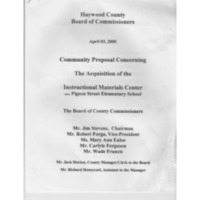
In 2000, the Pigeon Community Development Club formed for the purpose of creating and managing a community center at the site of the former school that served the Waynesville African American community prior to the desegregation of Haywood County Schools in 1964.
The Club was successful in securing a long-term lease for the building, calling it the Pigeon Community Center. The organization began a robust effort to host programming that benefits the Pigeon Community and the Haywood Community at large.
This exhibit will explore the creation of the center, its successes in creating popular programming to serve the community, and its impact on the greater Waynesville area.
Sports: A Way Out for Some
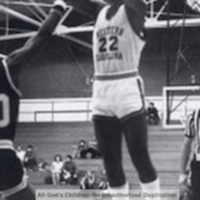
High school sports were and still are an initial part of rural mountain culture in Western Carolina. In the post-Civil Rights era many African American students gravitated towards sports to escape the hardships of daily life and for some it was a ticket to a brighter future. Integrated sports teams helped to bring communities together and allowed many athletes to move on to higher education. This exhibit showcases some of Western Carolina’s prime athletes that rose to fame in the sports world and helped to better their community.
Teaching to Make a Difference
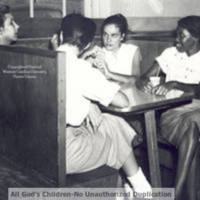
It would not be possible to adequately represent the importance of the teachers and schools in this community. African American teachers and schools played the leading role of teaching young students how important they were, and that they could be somebody.
This exhibit aims to represent the significance of these special individuals and institutions by looking at segregated schools, and the importance of teachers in the classroom as well as in the community.
The exhibit also includes a look into the Allen School, which was an African-American female boarding school in Asheville. Lastly, we will take a look at higher education for African-American students in far western North Carolina, with a spotlight on Western Carolina University.
The Heart of Western North Carolina
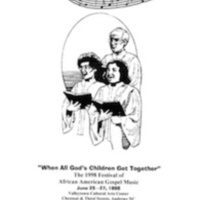
This exhibit will showcase the heart of the African American community in Western North Carolina. What is the heart of this amazing community you might ask? It is the religion. Religion in WNC has gotten the African American community through many trials and tribulations. It has provided them with strong leaders like Rev. Dr. Joseph H. Smith and Rev. Charlsie Sweat. Religion has given the members of the community the ability to host events like the 1998 Gospel Festival that not only brought African Americans closer to each other but allowed people of different races and cultures to grow closer with this community.
The Life and Legacy of Elizabeth Haley

The realities of racism and public policy in early-to-mid twentieth century Haywood County kept African Americans oppressed but Sarah Elizabeth Haley did not let that keep her down. Although Elizabeth was not involved in black activism movements, she was widely known throughout Waynesville for her amazing meals and her giving nature. Her chocolate upside down cake is still talked about to this day. Family oriented, Elizabeth created a legacy of strong African American women in Haywood County. She is remembered as an outstanding mother, grandmother, and friends, as well as one of the best cooks to ever grace Haywood County. Haley was able to find another social custom to foster unity between the races, southern cooking.
The Pigeon Street School and Reynolds School: Preserving "Sacred Ground"
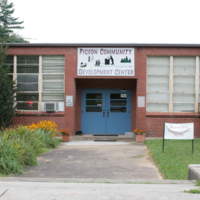
Former Reynolds School student, William McDowell, referred to the Reynolds School property as "sacred ground"; this statement encapsulates the need to preserve the African American history of Haywood County for future generations. These schools represent the fight for equality in a post-slavery and segregated society, providing a positive sense of identity for the larger African American community in Haywood County.
This exhibit consists of interviews that were conducted by students of Western Carolina University, partnered with the Lift Every Voice project of Haywood County, North Carolina. The interviews were conducted in order to document how segregation affected the former students and faculty of both Reynolds School and Pigeon Street School. The history of Haywood County's two segregated schools have been recorded, highlighting their possible futures.
Veterans: First Serving Their Country, Then Serving Their Community
After serving their country, African American veterans from Western North Carolina came home and served their communities diligently. Not only have the veterans served their country with diligence, upon returning to their homes towns, they wished to make those places better. These individuals played a vital role in the communities in which they lived. Most of these individuals were avid members of their local churches and community organizations. Furthermore, some of these individials went on to influence their surrounding communities. These veterans are significant members of the African American community in Western North Carolina, that are also helping other types of communities region wide.
Washington State Logging and Migration
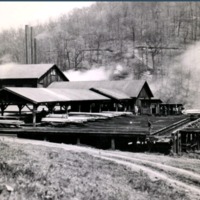
Logging in Western North Carolina was a major source of income for many families in the area. Jackson County could be seen as a late bloomer when it comes to logging. Other forests in the area were being logged in the early 1900's while Jackson County hit its peak in the 1920's. Key players in the industry included Blackwood Lumber Company and Blue Ridge Lumber Company. Overtime, companies began closing, which led to better job opportunities in the Pacific Northwest with its vast forests of virgin tree growth.
Because of better opportunities in Washington, there was a large migration of Jackson County residents to the region.
Whee are Champions: Athletics at Western, 1960s-1980s
This exhibit was curated by Kylie Shay, Senior History Major, as part of her capstone project. The exhibit highlights four athletes--and one entire team-who were important to WCU athletics history.